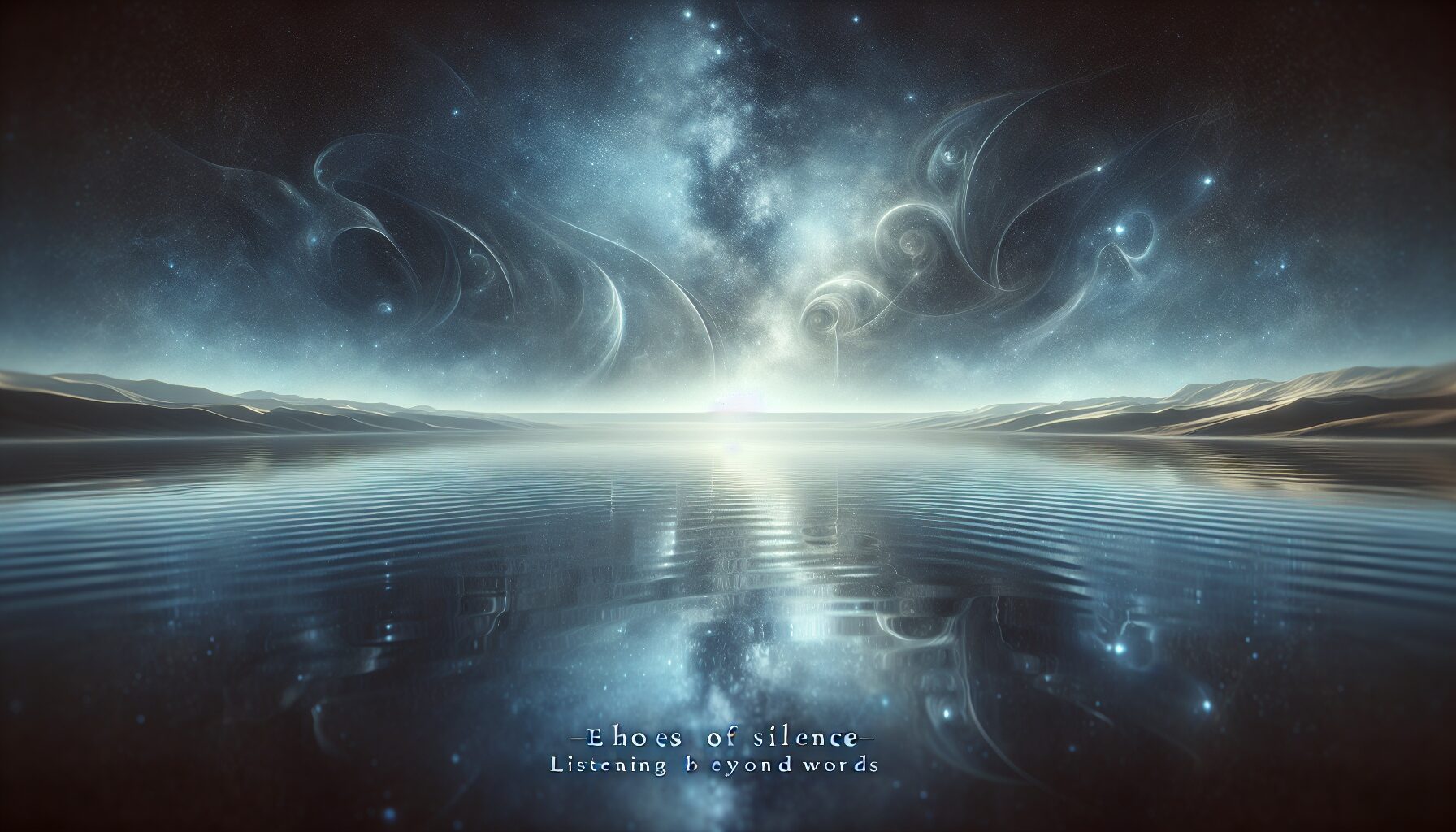In a world dominated by ceaseless chatter and the constant ping of digital notifications, silence often feels like a luxury. Yet, it is in silence that we find a profound depth of communication and understanding. To truly listen beyond words requires an awareness of the subtleties and an appreciation for the unsaid.
The Power of Silence in Communication
Silence in conversation can be as powerful as words themselves. It can convey a myriad of emotions—respect, contemplation, discomfort, or even disapproval. According to a study published in the Journal of Experimental Social Psychology, “silence can emphasize the importance of what was just said, indicating that words are not sufficient to fully capture the speaker’s intent.”
“In the attitude of silence the soul finds the path in a clearer light, and what is elusive and deceptive resolves itself into a crystal clearness,” said Mahatma Gandhi.
From casual interactions to professional negotiations, the strategic use of silence allows both speaker and listener to reflect on the conversation, making the exchange more meaningful and deliberate.
Silence in Different Cultures
Cultural differences play a significant role in how silence is interpreted. In some Asian cultures, for example, silence is considered a sign of respect and thoughtfulness. In Japan, the phrase “chinmoku” describes an agreeable silence shared by individuals, a concept seen as a social lubricant rather than a conversational void.
Contrast this with Western cultures, where silence might be more likely to be interpreted as awkwardness or disinterest. The perception of silence as an uncomfortable gap highlights a predominantly verbal-oriented mode of communication.
Listening to Nature’s Silence
Beyond human interaction, nature provides an entire spectrum of silence that speaks volumes. John Muir, famed naturalist and advocate for the conservation of the wilderness in the United States, encapsulated this beautifully: “The clearest way into the Universe is through a forest wilderness.” In these environments, silence is not the absence of sound but the presence of listening opportunities.
- Forest Silence: The gentle rustling of leaves, the distant call of a bird, the sound of a stream flowing—these are the whispers of the wild which require a keen listener to comprehend.
- Ocean Quietude: Standing at the edge of the ocean, the rhythmic crashing of waves provides a natural composition enabling deep reflection and mental clarity.
- Desert Stillness: The vast, open stretches of a desert, where silence envelops everything, is a powerful reminder of the grandeur of natural landscapes.
The Psychological Benefits of Silence
Silence has a tremendous impact on our mental health and well-being. A study in the Journal of Clinical Psychology suggests that quietness can improve mental clarity and focus. Regularly embracing silence can reduce stress and enhance one’s ability to process emotions effectively.
Furthermore, silence provides a necessary pause in our thought processes, fostering deeper insights and creativity. French philosopher Blaise Pascal once remarked, “All of humanity’s problems stem from man’s inability to sit quietly in a room alone.” Pascal’s observation highlights the inherent challenges and potential benefits of embracing silence.
Cultivating a Practice of Silence
Integrating silence into daily life can be transformative. To harness its power, one can begin with small, mindful practices:
- Meditation: Spend just a few minutes each day in meditation, focusing on the breath and observing thoughts passing without judgment.
- Nature Walks: Engage with the outdoors and notice the soft symphony of natural sounds, allowing them to guide your focus away from daily distractions.
- Digital Detox: Dedicate specific times to unplug from devices and enjoy the quiet of your surroundings.
Each of these practices can serve as a gentle reminder that silence, often seen as a passive absence, is in actuality a vibrant presence that demands to be heard.
In conclusion, embracing the echoes of silence enhances our ability to listen beyond words. It is a journey of understanding where the unspoken often holds more weight than the expressed. As we learn to navigate this absence of sound, we uncover its potential to strengthen connections, foster peace, and deepen our understanding of the world and ourselves.
To explore more about the profound impact of silence, consider visiting resources such as Psychology Today or engaging in a local meditation community.




